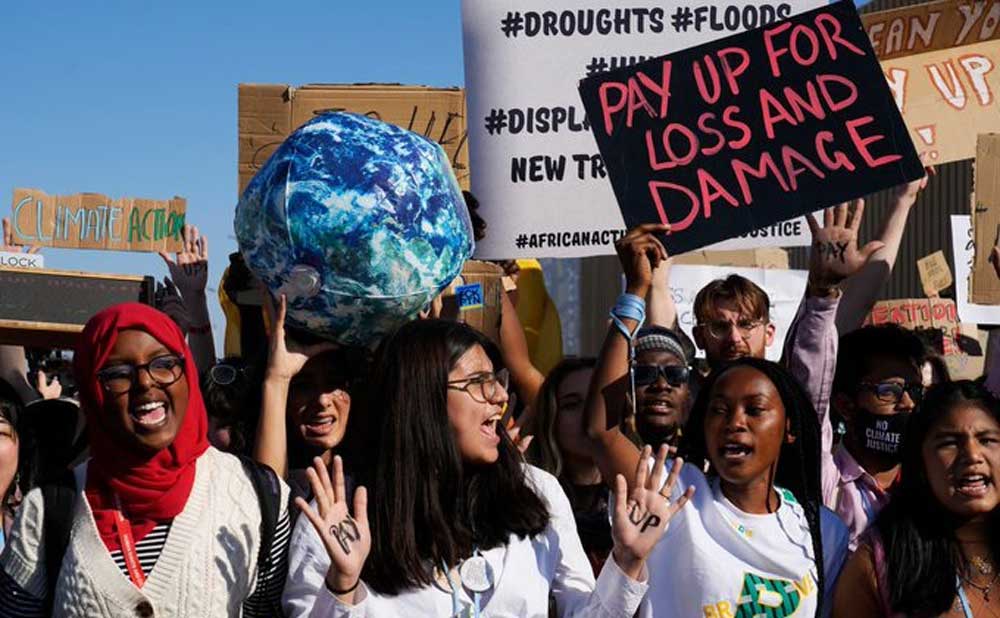The International Monetary Fund (IMF) has cautioned the United States, Unites Kingdom and other developed countries against insufficient climate mitigation finance and investment in Nigeria and other developing countries.
The IMF said the world may fail in its net zero target if developed countries and their companies fail to increase their financing for energy transition-related projects.
Advertisement
The financial institution made the call in a 43-page document titled ‘Is the Paris Agreement Working? A Stocktake of Global Climate Mitigation’ which was obtained by THE WHISTLER.
The IMF said, “To achieve net-zero by 2050, climate mitigation investment (public and private) would need to rise from $0.9 trillion in 2020 to $5 trillion annually by 2030. About 60 to 70 percent of these investment needs are in the energy sector, notably generation and distribution of electricity (about half) and energy efficiency (about a quarter).
“Of the total, $2 trillion is needed in developing countries ($1.2 trillion excluding China), a five-fold increase from $370 billion in 2020.
“Public investments are needed notably in enabling infrastructure such as electricity grid technology, hydrogen and other pipelines, and efficiency upgrades for public buildings. Globally, the private share of climate investment needs to rise from about 50 percent in 2021 to over 80 percent by 2030.”
Advertisement
During the 2015 Paris Agreement negotiations, it was recognized that country pledges (nationally determined contribution, NDCs) would not be sufficient for keeping global warming “well below” 2°C above pre-industrial levels and ideally to 1.5°C.
The IMF said so far, there is a gap in implementation and hence stronger mitigation policies are
needed, especially in energy.
The document noted that in 2021, energy-related CO2 and other Green House Gas (GHG) emissions accounted for three-quarters of global GHG emissions.
It said coal, oil, and gas account for 45, 30, and 25 per cent of emissions respectively while
sector, power, industry, transport, and buildings accounted for 25, 19, 14, and 7 per cent of these
emissions, respectively.
The IMF pointed out that fossil fuel subsidies remain very large and have grown over the last
two years as it amounted to $7 trillion in 2022, equivalent which is an equivalent of 7 percent of global GDP.
Advertisement
The IMF said developed countries committed to mobilize $100bn a year in climate finance from 2020 until at least 2025 which they have not been able to meet.



